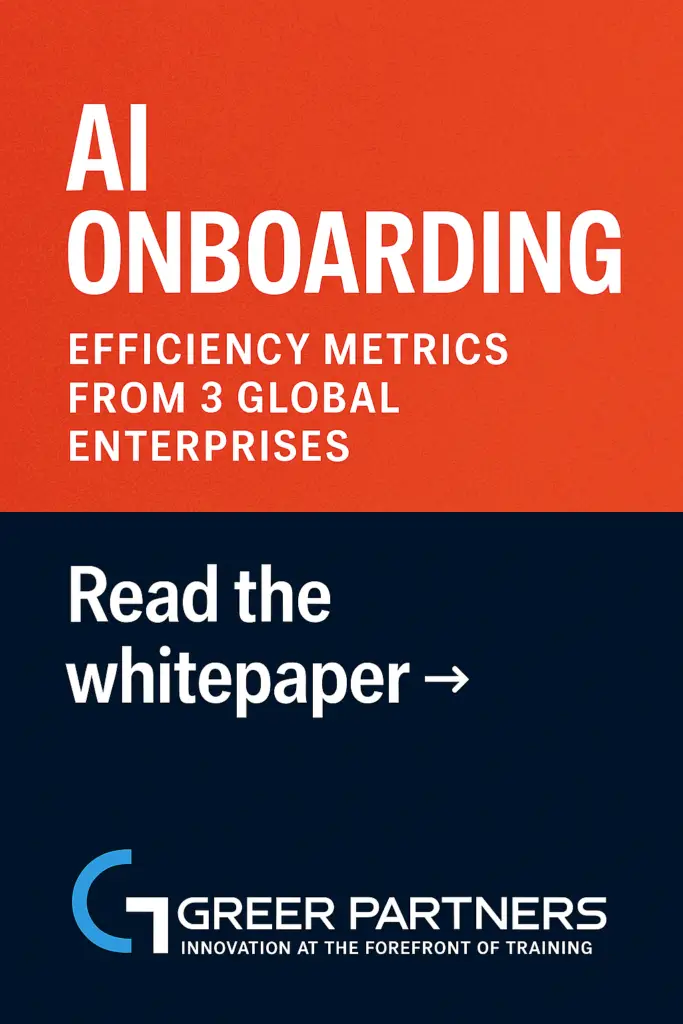
AI Onboarding: Efficiency Metrics from 3 Global Enterprises
Executive Summary
This whitepaper summarizes onboarding performance metrics from three enterprise organizations that deployed Greer AI Co-Pilot to streamline new employee training across IT, compliance, and operational workflows. These organizations—operating in financial services, logistics, and SaaS—were seeking to accelerate time-to-productivity, reduce training overhead, and deliver consistent learning experiences at scale.
Each enterprise implemented Greer AI Co-Pilot as a real-time digital assistant and adaptive learning engine to guide new hires through their initial 30 days. By integrating with existing learning management systems (LMS), enterprise platforms (e.g., Salesforce, Workday), and internal knowledge repositories, the AI assistant delivered on-demand, role-specific coaching with built-in knowledge assessments.
Key performance indicators (KPIs) from these deployments include a 40% average reduction in onboarding duration, a 3.2x increase in completion of core onboarding modules, and a 36% decrease in early-stage support desk tickets. Teams using the AI-driven onboarding experience reached full productivity benchmarks 9.6 days faster than those in the traditional onboarding groups.
Additional benefits included higher new hire satisfaction scores (+27%) and more consistent knowledge retention, as measured by post-onboarding assessments. Managers also reported improved consistency across regional offices and global teams, helping standardize the onboarding journey.
This paper includes a summary of onboarding KPIs by industry, mock performance dashboards, and a playbook for enterprise leaders to pilot AI Co-Pilot in their own environments. With the increasing complexity of digital ecosystems, AI onboarding is proving to be not just a timesaver—but a competitive advantage.
